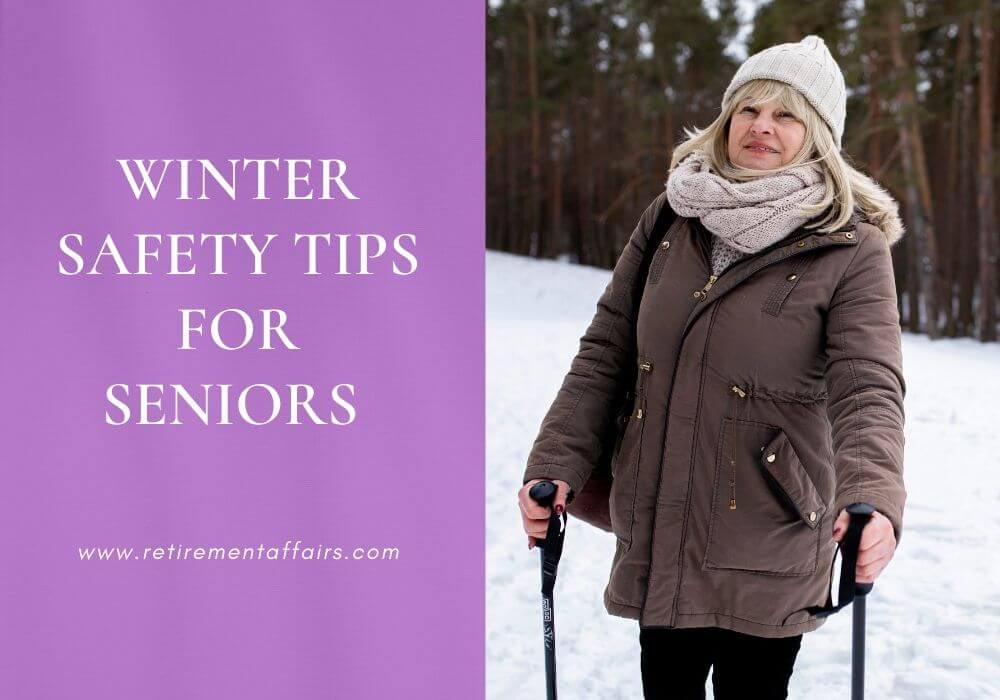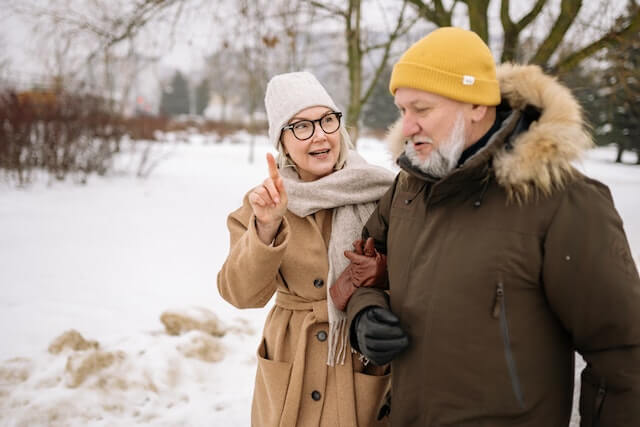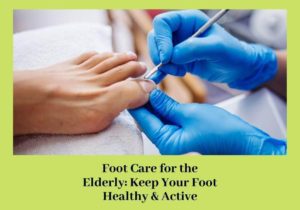
As the chill of winter descends upon us, it is important to prioritize the safety and well-being of our senior population. Older adults are more susceptible to the harsh effects of cold weather, making it crucial to take necessary precautions to ensure their safety. By following some simple yet effective winter safety tips for seniors, we can create a secure environment for them to navigate through the winter months. This article aims to provide an elaborate guide to safeguarding the health and well-being of our elderly loved ones during winter.
Let’s take a look at the top seven Winter Safety Tips for Seniors:
1. Keep Warm Indoors
Maintaining a warm and comfortable indoor environment is paramount for seniors during winter. Here are a few guidelines to consider:
a) Heating Systems: Ensure the heating systems, such as furnaces or space heaters, are in good working condition. Regular maintenance and inspections can help identify any potential issues and ensure efficient heating.
b) Adequate Insulation: Insulate windows and doors to prevent drafts and heat loss. Proper insulation helps maintain a warm and cozy indoor temperature, reducing the risk of hypothermia and other cold-related health problems.
c) Layer Clothing: Encourage seniors to dress in layers and opt for warm, breathable fabrics. Layering allows them to adjust their clothing according to their comfort levels and helps trap heat effectively.
2. Safe Outdoor Activities
While staying indoors is advisable during extreme weather conditions, some seniors may need to venture outside. Here are a few tips to ensure their safety during outdoor activities:

a) Slip-Resistant Footwear: Encourage seniors to wear appropriate footwear with slip-resistant soles to prevent falls on icy or slippery surfaces. Adding ice grips or traction aids to shoes can provide extra stability.
b) Clear Walkways: Regularly remove snow, ice, and debris from walkways, driveways, and entrances. Applying salt or sand on icy surfaces can enhance traction and minimize the risk of slips and falls.
c) Outdoor Assistance: Encourage seniors to seek assistance for outdoor tasks such as shoveling snow or de-icing surfaces. Physical exertion in extreme cold can be dangerous, so it’s important to minimize these risks.
3. Preventing Hypothermia
Hypothermia is a serious concern for seniors during winter. Here are a few winter safety tips for seniors:
a) Adequate Indoor Temperature: Maintain indoor temperatures between 68-70°F (20-21°C) to keep seniors warm and comfortable. Ensure they have access to warm blankets and heating sources if necessary.
b) Layer Clothing Outdoors: Advise seniors to layer clothing when going outside. A warm hat, gloves, scarves, and thermal socks are essential to keep the extremities protected.
c) Monitor Symptoms: Educate seniors and their caregivers about the early signs of hypothermia, such as shivering, confusion, slurred speech, and drowsiness. Regularly check on their well-being and seek medical attention if symptoms are observed.
Check Our Article “Best 8 Tips for Foot Care for the Elderly”
4. Maintaining a Healthy Diet

Eating a nutritious and well-balanced diet is essential to support the immune system during winter. Encourage seniors to consume a variety of fruits, vegetables, whole grains, and lean proteins. Drinking enough water is also important, as dehydration can be a concern even in colder weather. Hot meals and beverages can be comforting and help maintain body temperature.
5. Combatting Seasonal Affective Disorder (SAD)
Seniors are also susceptible to Seasonal Affective Disorder, commonly known as SAD, due to reduced exposure to sunlight. Here are a few strategies to alleviate its impact:
a) Maximize Natural Light: Encourage seniors to spend time near windows during the day to maximize exposure to natural light. Opening curtains and blinds can help brighten indoor spaces.
b) Light Therapy: Consider using light therapy boxes that simulate natural light. These devices have proven to be effective in reducing the symptoms of SAD and boosting mood.
c) Stay Active and Engaged: Encourage seniors to engage in activities they enjoy and socialize with family and friends. Regular exercise, hobbies, and meaningful connections can help combat feelings of loneliness and depression.
6. Regular Exercise
Engaging in regular physical activity during winter is vital for seniors’ overall health and well-being. Exercise improves circulation and helps keep the body warm. Indoor activities like yoga, tai chi, or simple stretching routines are excellent choices. Seniors should consult their healthcare provider before starting any exercise regimen to ensure it suits their specific needs and health conditions.
7. Get Vaccinated
Winter is flu season, and seniors are more vulnerable to flu-related complications. Getting vaccinated against the flu is a crucial step in protecting oneself from the virus. Additionally, seniors should also consider getting the pneumonia vaccine, as pneumonia is another common winter illness that can be severe for older adults.
Winter safety for seniors is of utmost importance to ensure their well-being. By implementing these comprehensive winter safety tips for seniors, we can create a secure environment for our elderly loved ones. Remember, maintaining a warm indoor atmosphere, taking precautions during outdoor activities, preventing hypothermia, and addressing Seasonal Affective Disorder can make a significant difference in promoting the health and happiness of seniors during the cold winter months. Let us prioritize the safety of our seniors and provide them the care they deserve throughout the winter season.
YOU CAN ALSO READ :
*Best 15 Hobbies for Elderly at Home to Keep Them Busy and Happy
*Best 10 Dress Code Ideas: What to Wear to A Retirement Party?
*Best Retirement Party Decorations Ideas to Make It Memorable



